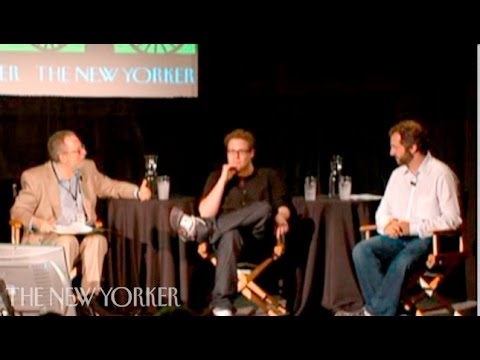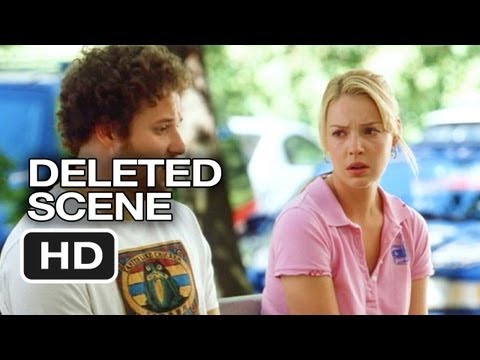One of the most popular movies on Netflix this month is Knocked Up, the 2007 Judd Apatow comedy that dared to ask “What if Seth Rogen was fertile?” and then constructed an entire 129-minute feature film around that premise.
Knocked Up has also been the subject of numerous controversies. Not long after the movie came out, Rogen’s co-star Katherine Heigl called out the script’s misogyny, telling Vanity Fair, “It paints the women as shrews, as humorless and uptight, and it paints the men as lovable, goofy, fun-loving guys.” Despite being 100 percent correct, Heigl was criticized by Apatow and Rogen for her comments, and some have claimed that her “rise to the top quickly unraveled” following the interview.
But Heigl was far from the only person to take issue with Knocked Up in 2007.
Critics, including Slate’s Dana Stevens, pointed out that it was more than a little weird that Knocked Up contained no substantive conversations about abortion, or even any utterance of the word “abortion,” considering that it’s the story of an unwanted pregnancy. Obviously, the character of Alison chooses not to have an abortion, but as Stevens pointed out, she is “single, barely acquainted with the father, financially dependent (she lives with her married sister)” and breaks into tears at the sight of a sonogram, so you’d think the subject would at least come up!
And yet, Knocked Up featured more discussion of Doc Brown’s DeLorean than abortion.
Two very fleeting references to abortion occur when Jonah Hill’s character, careful not to say the “A-word,” suggests something that “rhymes with shmish-mortion,” and also when Alison’s antagonistic mother casually says that she should “take care of it” and “move on.”
At the time, The New Yorker suggested that Apatow “clearly wants his movies to shock, but not to repel, a conservative audience” which is why “his heroine’s aborting the child is no sooner floated than dispelled.” The New York Times lambasted the film as “No-Choice” and quoted an anonymous studio executive who questioned, “At a time when women’s reproductive freedom is under attack in the courts, why wouldn’t it come up as part of the conversation? Are you making a statement by assiduously avoiding the discussion?”
Some anti-choice conservatives saw Knocked Up’s omission of the abortion conversation as a distinct reflection of their values. The National Review claimed that Knocked Up was “post-abortion theater” in which “abortion is presented as an option whose time has come and gone.” And radio host Michael Medved praised its “unexpectedly potent pro-life and pro-family message.”
Despite these reviews, Apatow asserted that this wasn’t at all his goal, stating, “I’m as pro-choice as you can get, but the movie would have been 10 minutes long if she had an abortion.” He also questioned the backlash. “I am also kind of surprised that it’s shocking to people that (Alison and Ben) don’t get an abortion,” he told an interviewer in 2007. “Is it so weird in this day and age that people are uncomfortable doing that?”
Knocked Up was arguably still progressive for even illustrating that Alison has options, and that the decision to go through with pregnancy is an expression of her autonomy. As Allie Gemmill noted in an article for Bustle, having the baby is itself “a feminist act on Alison’s behalf because it supports her right to choose what’s best for her.”
But what continues to trouble some viewers, especially in a post-Roe America, is the refusal to even have a character so much as utter the word “abortion.” Apatow later revealed that he “knew this was going to be an issue” so they actually “shot a lot of abortion debate.” Unfortunately, this footage ended up on the cutting room floor, including a scene in which Rogen and Heigl paused to weigh their options.
But the most comprehensive conversation about abortion is conducted by four male characters (Rogen and his stoner buddies), and it quickly devolves into a discussion of whether or not semen is like the Spice Melange from Dune.

It’s unclear if the studio pressured Apatow to remove these scenes, or if simply he cut them for time — which, judging from most of his films’ run times, is hard to buy.
You (yes, you) should follow JM on Twitter (if it still exists by the time you’re reading this).

